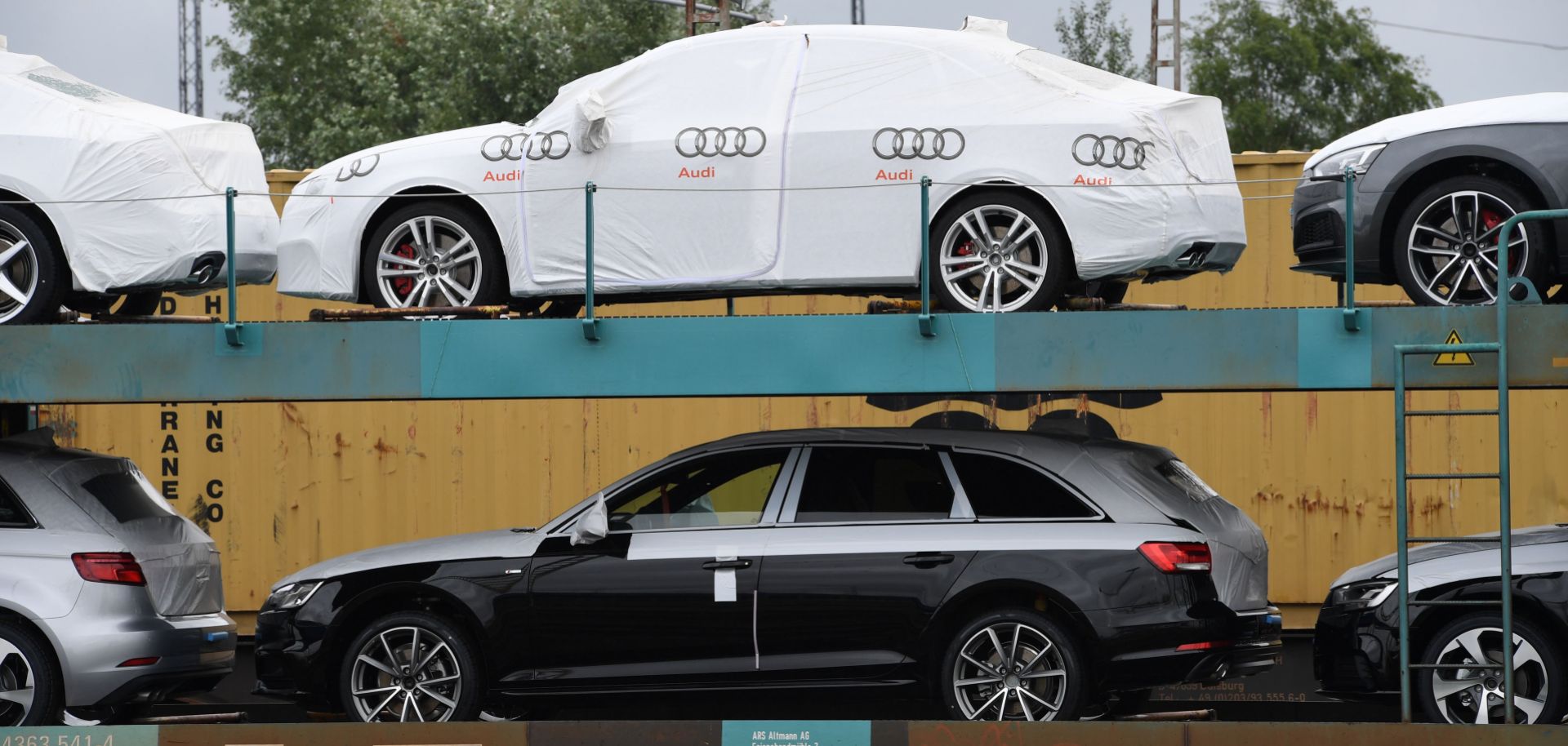ASSESSMENTS
What Higher U.S. Car Tariffs Could Mean for Europe
Aug 27, 2018 | 09:00 GMT

Cars from German manufacturer Audi await transport in the German port city of Bremerhaven in July 2017. The Trump administration has threatened to impose higher tariffs on cars imported from the European Union.
(PATRIK STOLLARZ/AFP/Getty Images)
Highlights
- As the main producer of cars in Europe and the main exporter to the United States, Germany would be the biggest loser if the White House imposed higher tariffs on automobiles made in the European Union.
- Complex supply chains in Europe mean that higher American tariffs would affect many other countries, particularly in Central and Eastern Europe.
- Should the United States pressure the European Union to include agriculture in their trade negotiations, the move would lead to friction between Germany and France and reduce the chances of reaching an agreement.
Subscribe Now
SubscribeAlready have an account?
